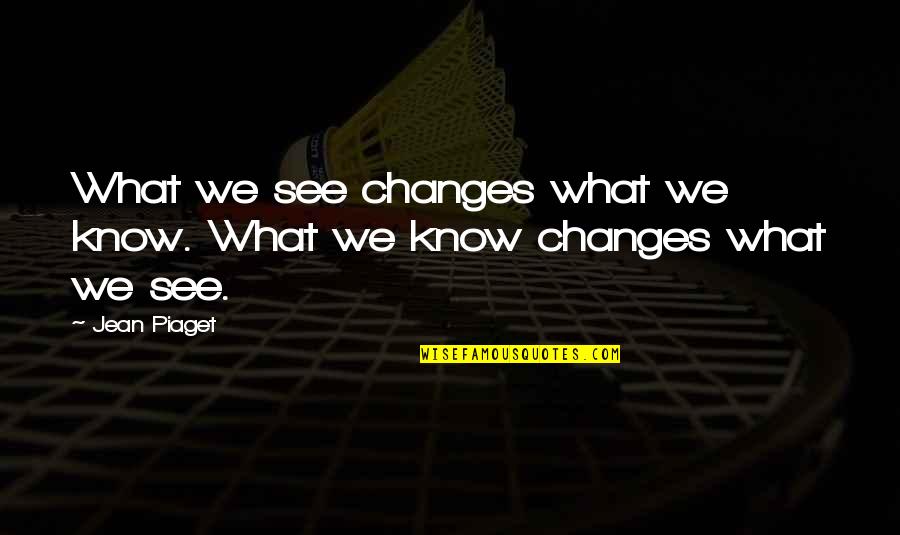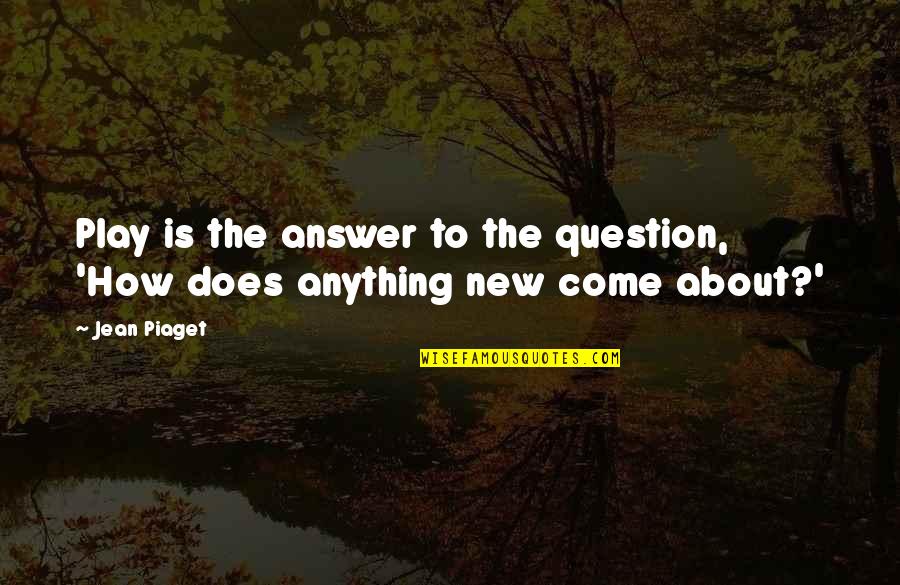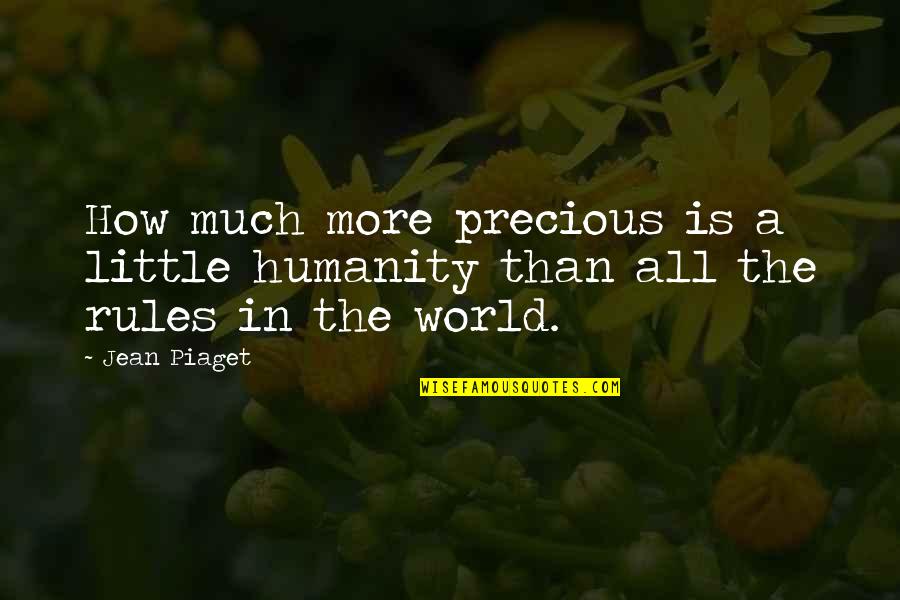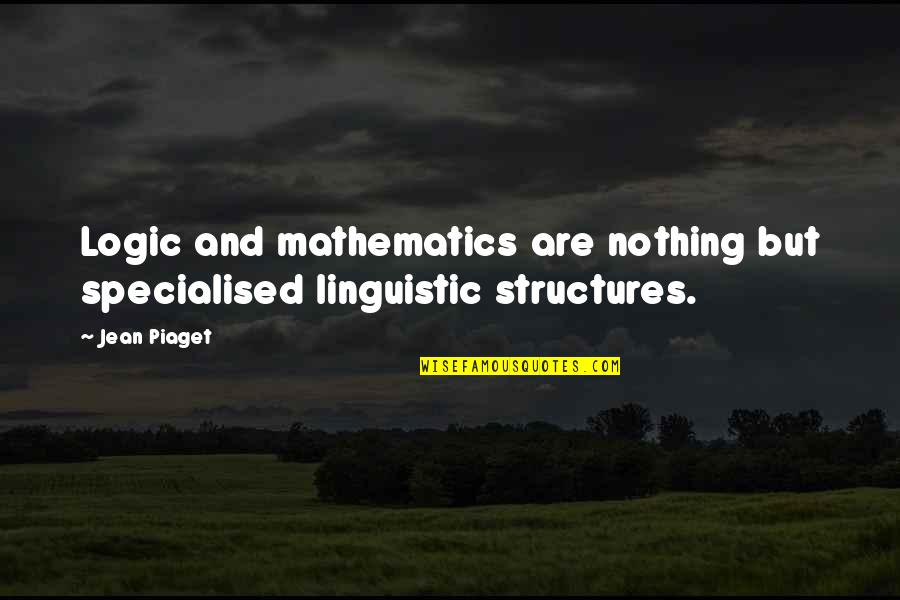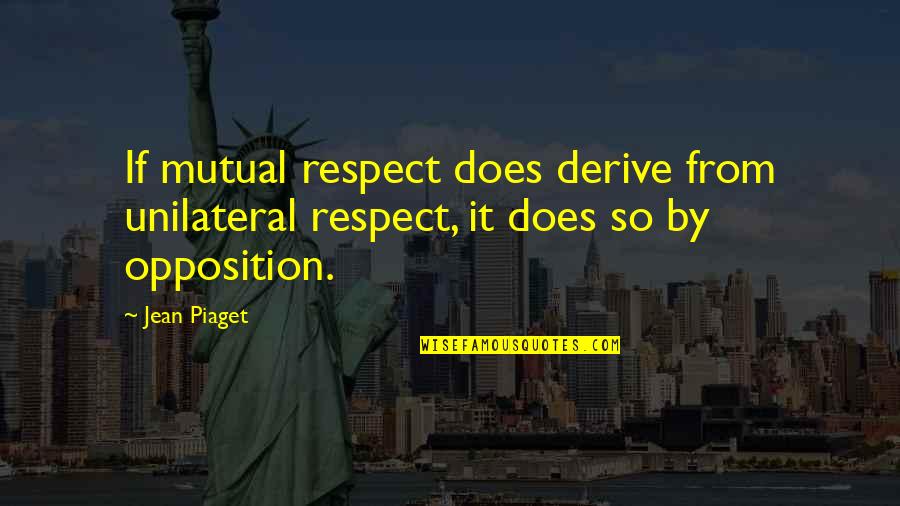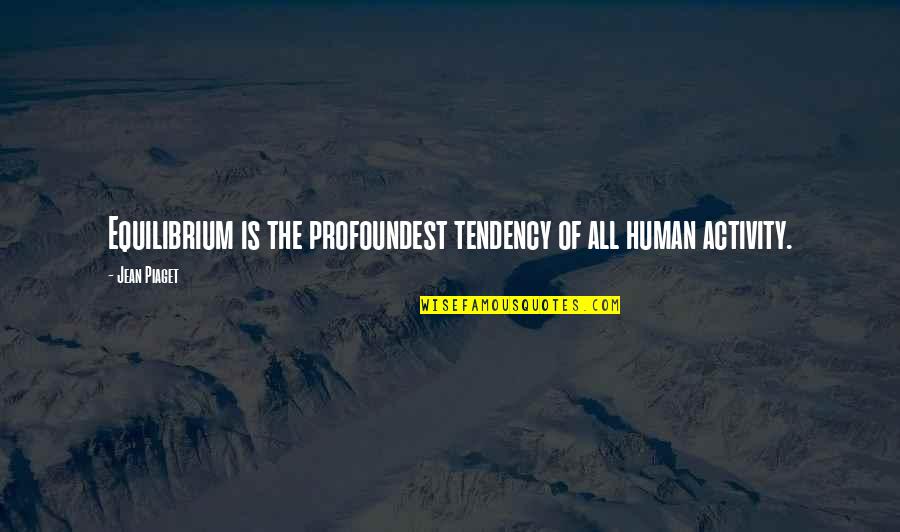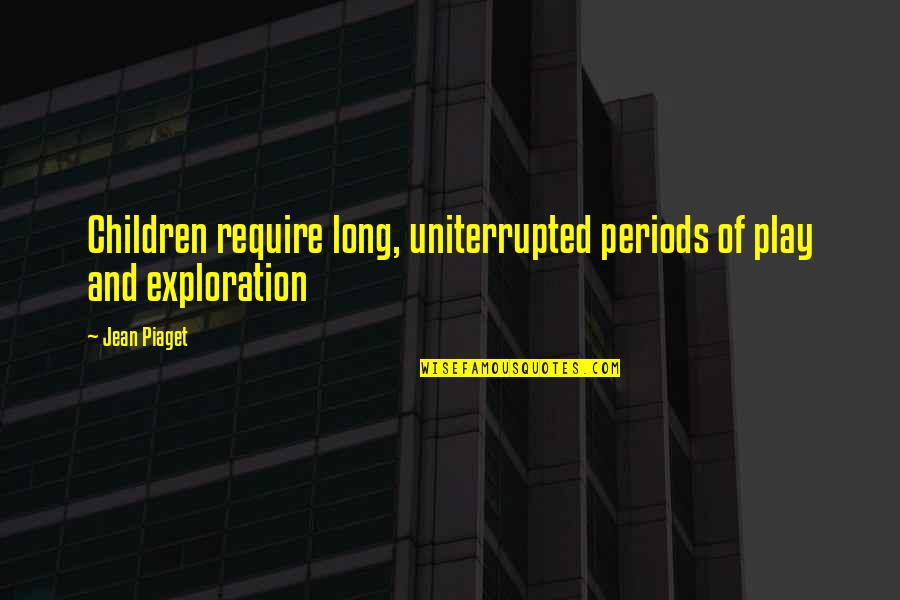Jean Piaget Quotes
Collection of top 44 famous quotes about Jean Piaget
Jean Piaget Quotes & Sayings
Happy to read and share the best inspirational Jean Piaget quotes, sayings and quotations on Wise Famous Quotes.
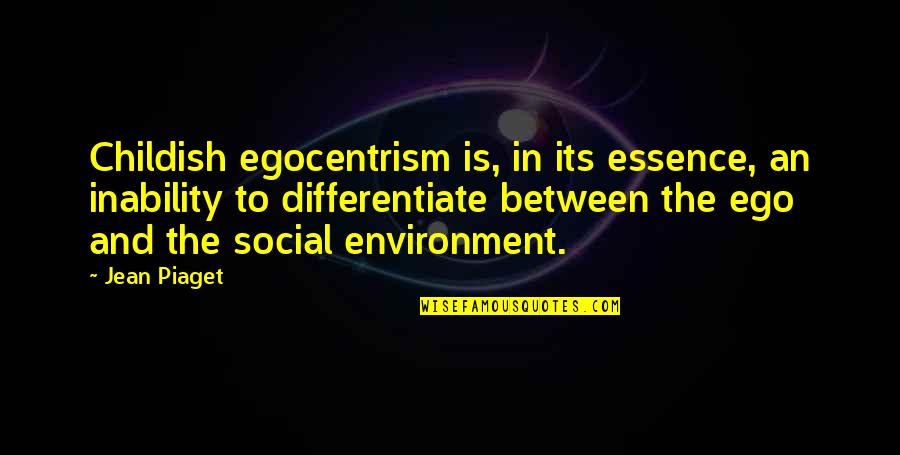 Childish egocentrism is, in its essence, an inability to differentiate between the ego and the social environment.
— Jean Piaget
Childish egocentrism is, in its essence, an inability to differentiate between the ego and the social environment.
— Jean Piaget
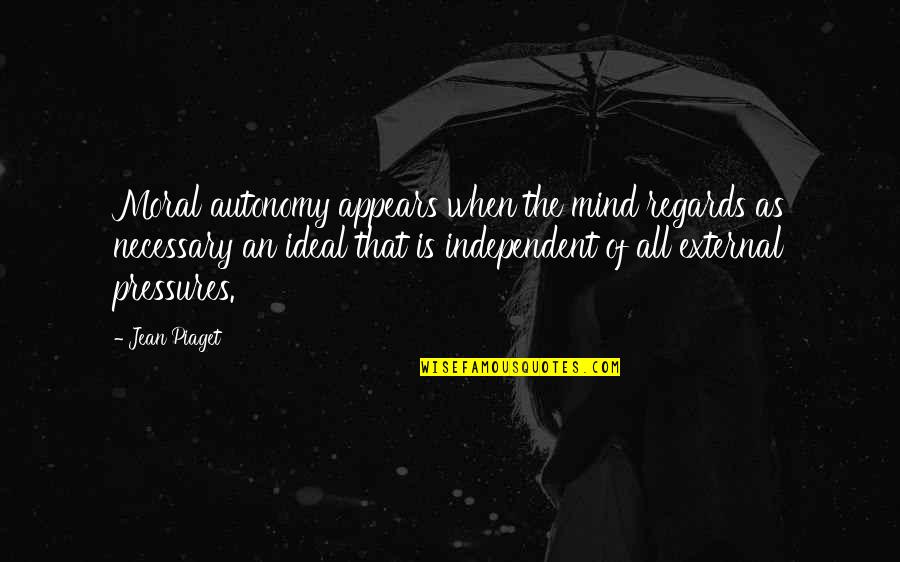 Moral autonomy appears when the mind regards as necessary an ideal that is independent of all external pressures.
— Jean Piaget
Moral autonomy appears when the mind regards as necessary an ideal that is independent of all external pressures.
— Jean Piaget
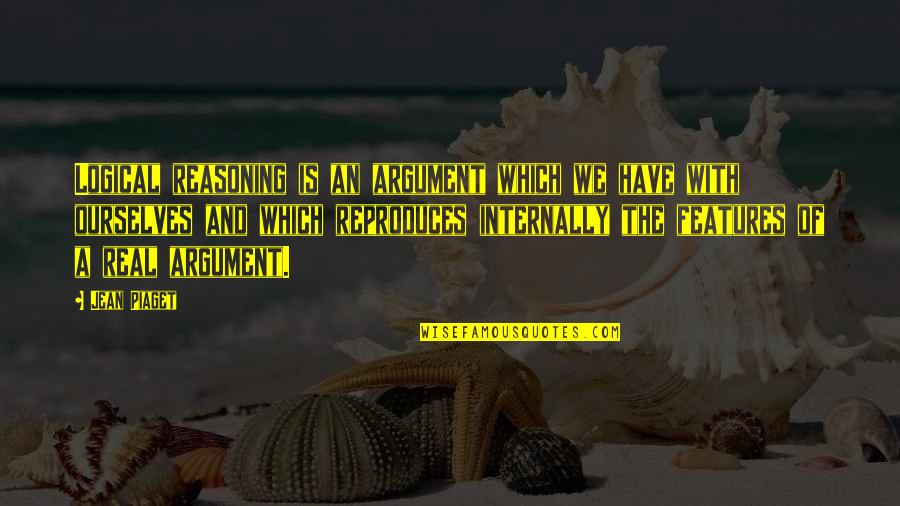 Logical reasoning is an argument which we have with ourselves and which reproduces internally the features of a real argument.
— Jean Piaget
Logical reasoning is an argument which we have with ourselves and which reproduces internally the features of a real argument.
— Jean Piaget
 Jean Piaget observed that scarcely any question seems absurd to a child, but he was silent on the question of absurd answers from adults.
— Nancy Willard
Jean Piaget observed that scarcely any question seems absurd to a child, but he was silent on the question of absurd answers from adults.
— Nancy Willard
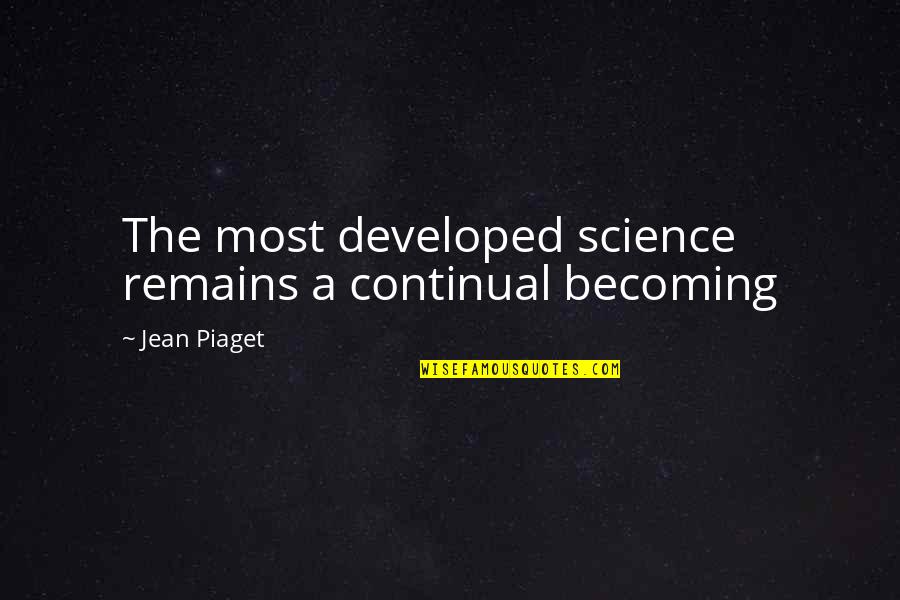 The most developed science remains a continual becoming
— Jean Piaget
The most developed science remains a continual becoming
— Jean Piaget
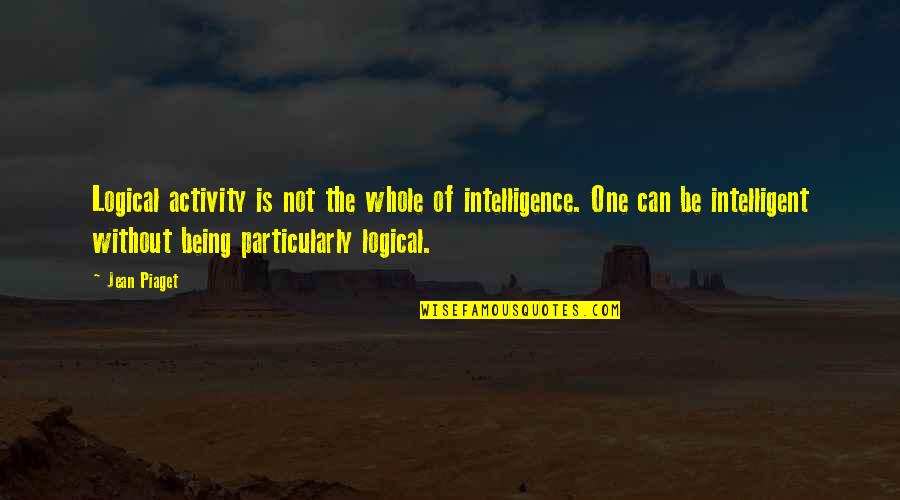 Logical activity is not the whole of intelligence. One can be intelligent without being particularly logical.
— Jean Piaget
Logical activity is not the whole of intelligence. One can be intelligent without being particularly logical.
— Jean Piaget
 How can we, with our adult minds, know what will be interesting? If you follow the child ... you can find out something new ...
— Jean Piaget
How can we, with our adult minds, know what will be interesting? If you follow the child ... you can find out something new ...
— Jean Piaget
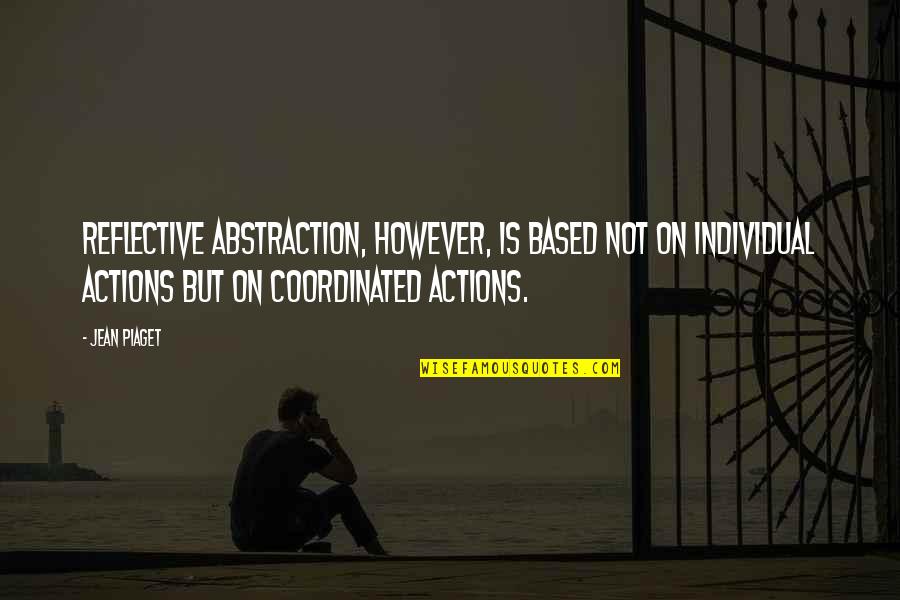 Reflective abstraction, however, is based not on individual actions but on coordinated actions.
— Jean Piaget
Reflective abstraction, however, is based not on individual actions but on coordinated actions.
— Jean Piaget
 Scientific knowledge is in perpetual evolution; it finds itself changed from one day to the next.
— Jean Piaget
Scientific knowledge is in perpetual evolution; it finds itself changed from one day to the next.
— Jean Piaget
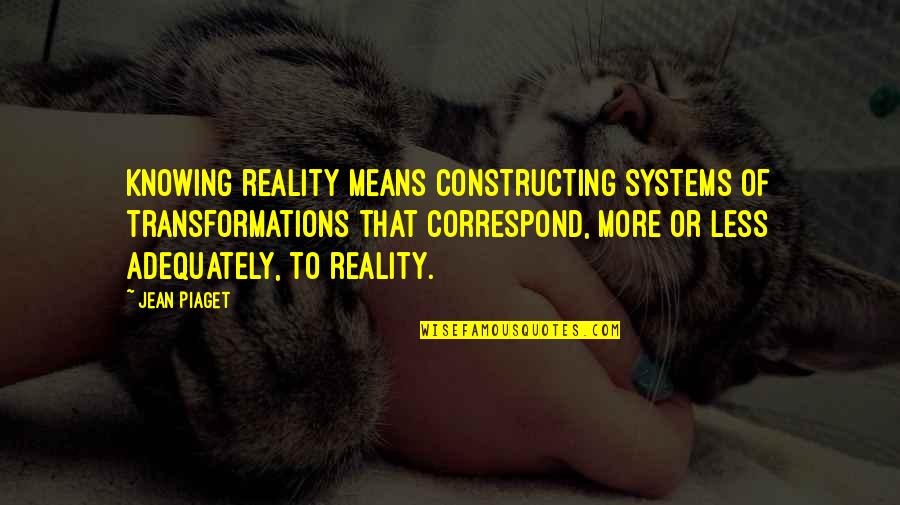 Knowing reality means constructing systems of transformations that correspond, more or less adequately, to reality.
— Jean Piaget
Knowing reality means constructing systems of transformations that correspond, more or less adequately, to reality.
— Jean Piaget
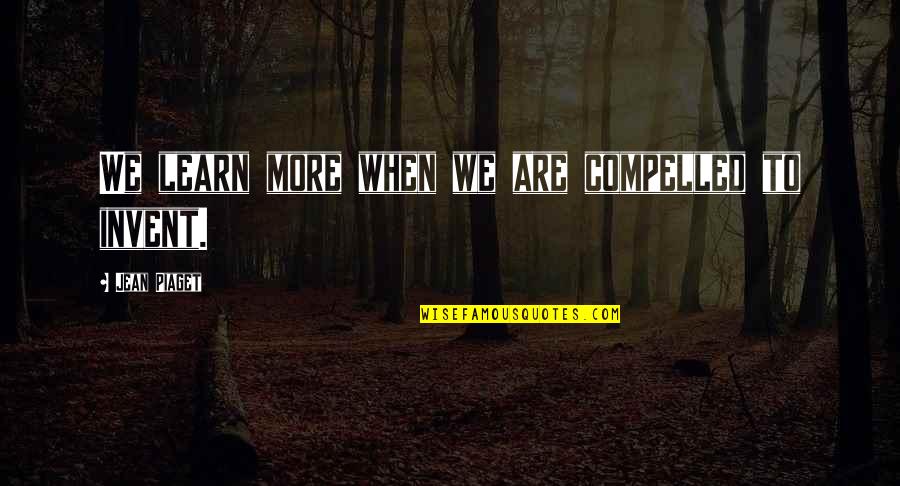 We learn more when we are compelled to invent.
— Jean Piaget
We learn more when we are compelled to invent.
— Jean Piaget
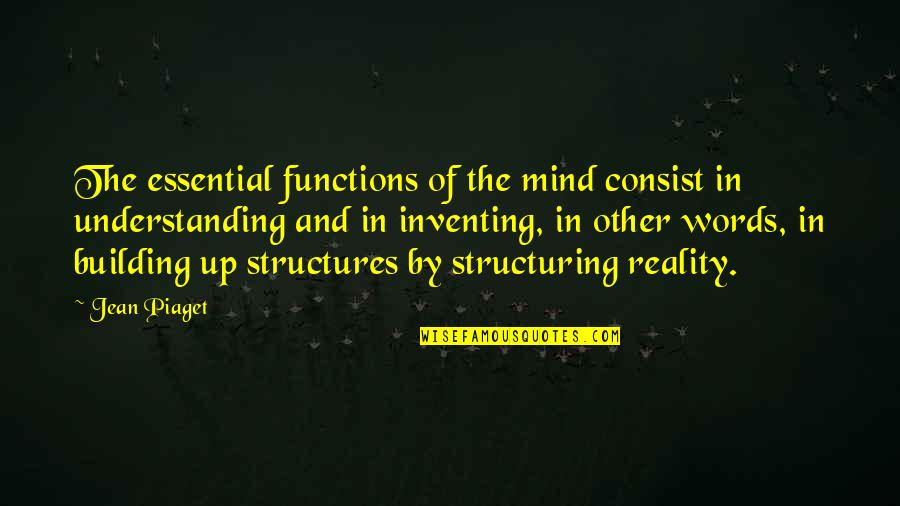 The essential functions of the mind consist in understanding and in inventing, in other words, in building up structures by structuring reality.
— Jean Piaget
The essential functions of the mind consist in understanding and in inventing, in other words, in building up structures by structuring reality.
— Jean Piaget
 Every acquisition of accommodation becomes material for assimilation, but assimilation always resists new accommodations.
— Jean Piaget
Every acquisition of accommodation becomes material for assimilation, but assimilation always resists new accommodations.
— Jean Piaget
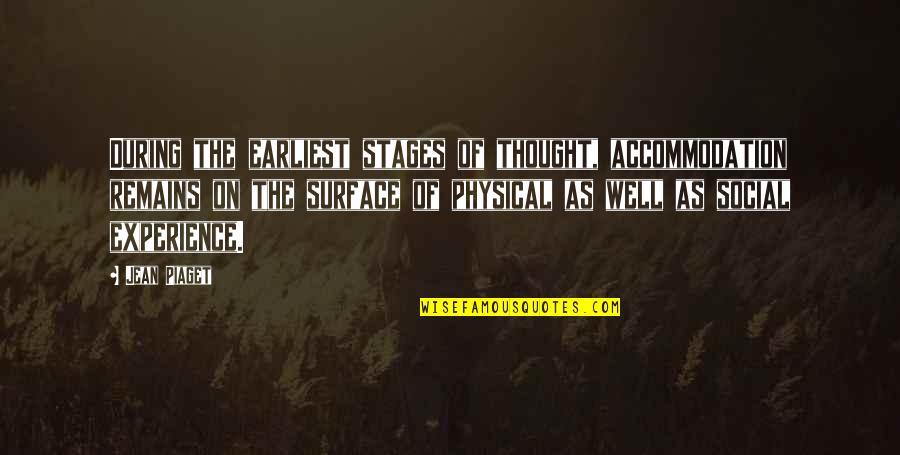 During the earliest stages of thought, accommodation remains on the surface of physical as well as social experience.
— Jean Piaget
During the earliest stages of thought, accommodation remains on the surface of physical as well as social experience.
— Jean Piaget
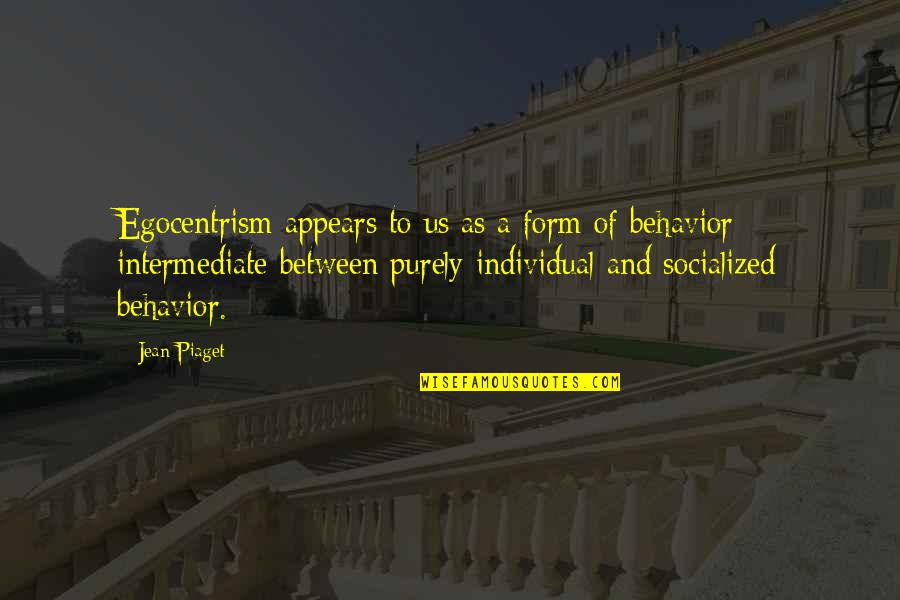 Egocentrism appears to us as a form of behavior intermediate between purely individual and socialized behavior.
— Jean Piaget
Egocentrism appears to us as a form of behavior intermediate between purely individual and socialized behavior.
— Jean Piaget
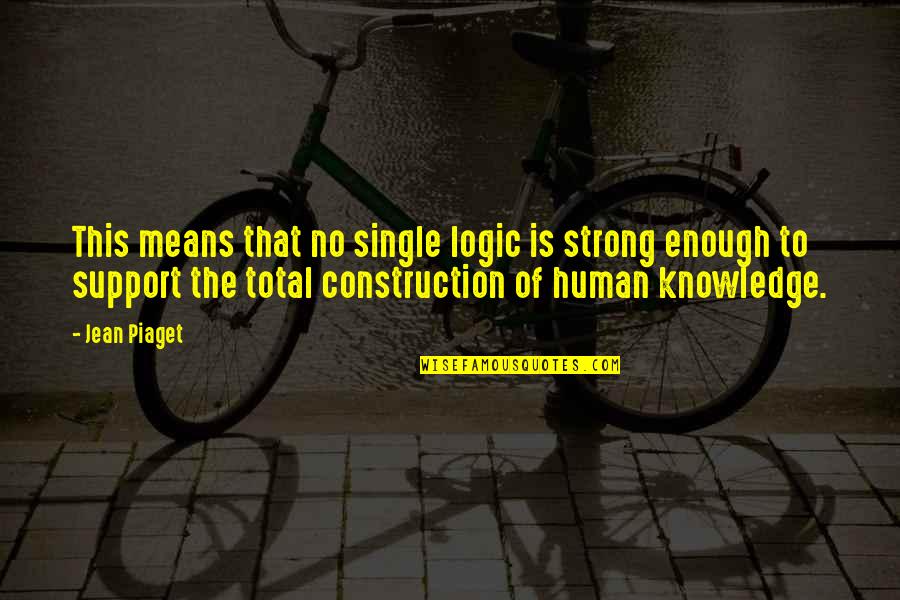 This means that no single logic is strong enough to support the total construction of human knowledge.
— Jean Piaget
This means that no single logic is strong enough to support the total construction of human knowledge.
— Jean Piaget
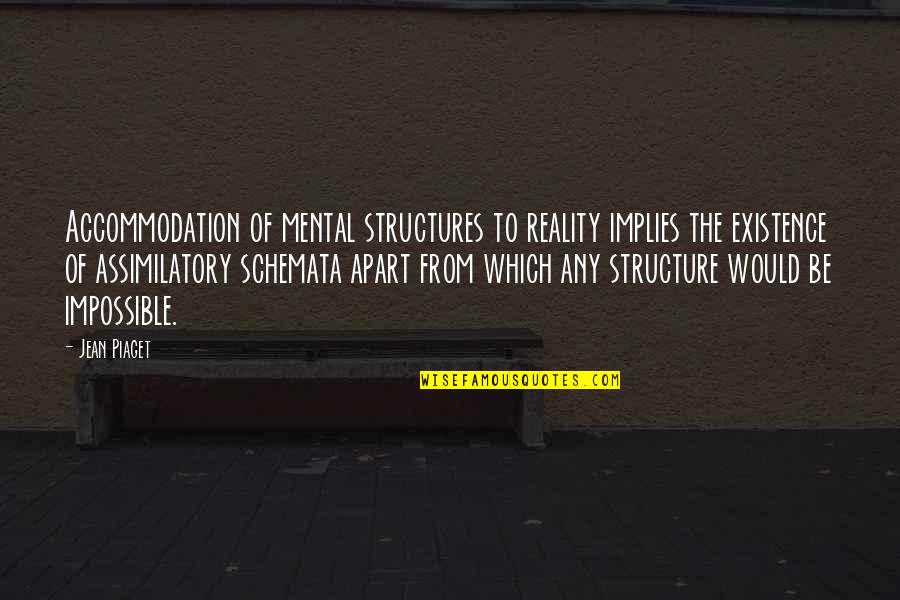 Accommodation of mental structures to reality implies the existence of assimilatory schemata apart from which any structure would be impossible.
— Jean Piaget
Accommodation of mental structures to reality implies the existence of assimilatory schemata apart from which any structure would be impossible.
— Jean Piaget
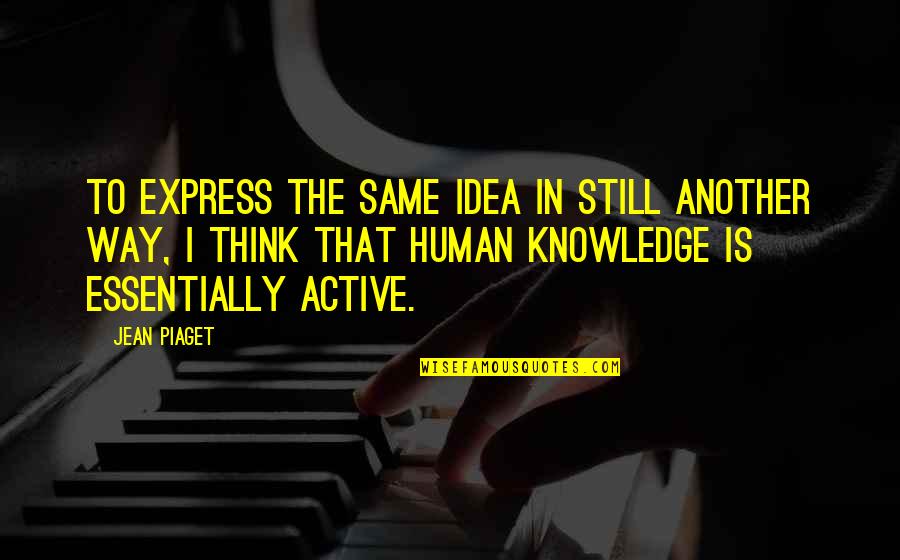 To express the same idea in still another way, I think that human knowledge is essentially active.
— Jean Piaget
To express the same idea in still another way, I think that human knowledge is essentially active.
— Jean Piaget
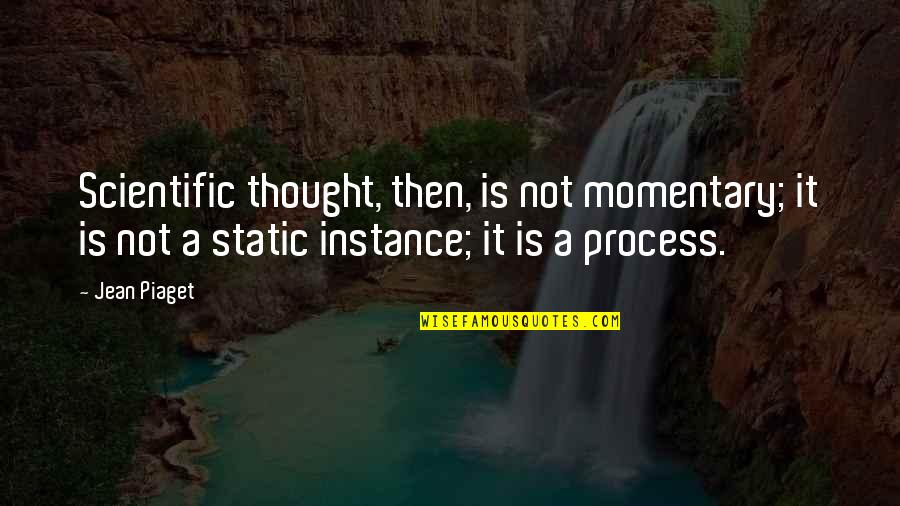 Scientific thought, then, is not momentary; it is not a static instance; it is a process.
— Jean Piaget
Scientific thought, then, is not momentary; it is not a static instance; it is a process.
— Jean Piaget
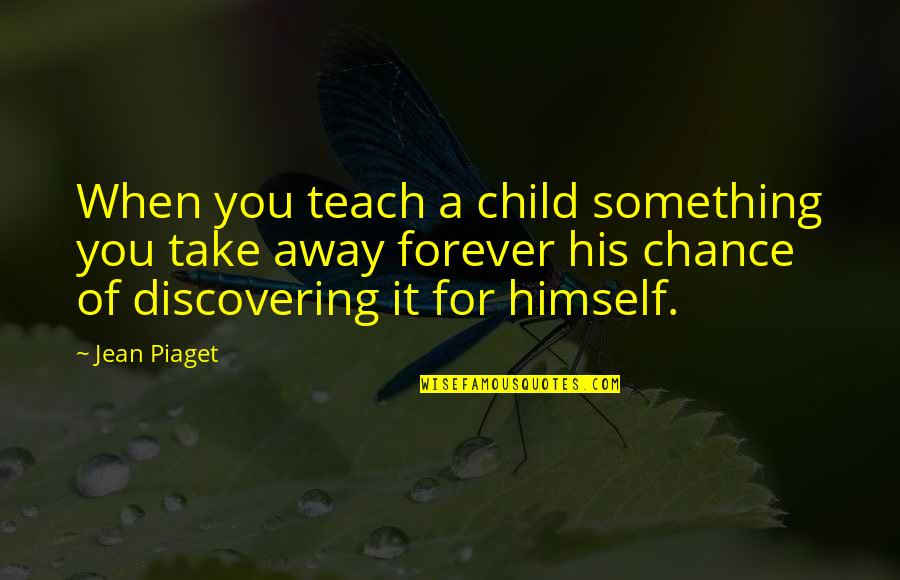 When you teach a child something you take away forever his chance of discovering it for himself.
— Jean Piaget
When you teach a child something you take away forever his chance of discovering it for himself.
— Jean Piaget
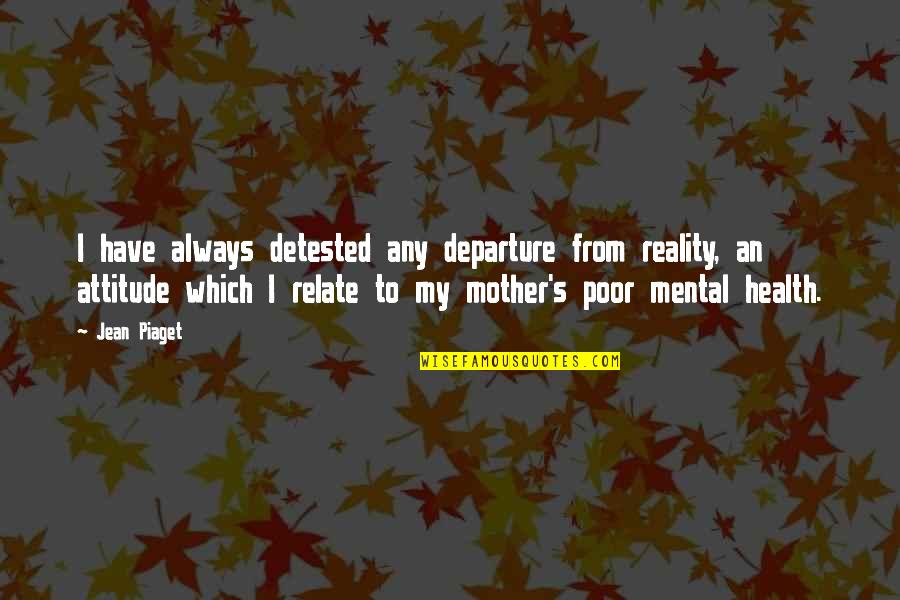 I have always detested any departure from reality, an attitude which I relate to my mother's poor mental health.
— Jean Piaget
I have always detested any departure from reality, an attitude which I relate to my mother's poor mental health.
— Jean Piaget
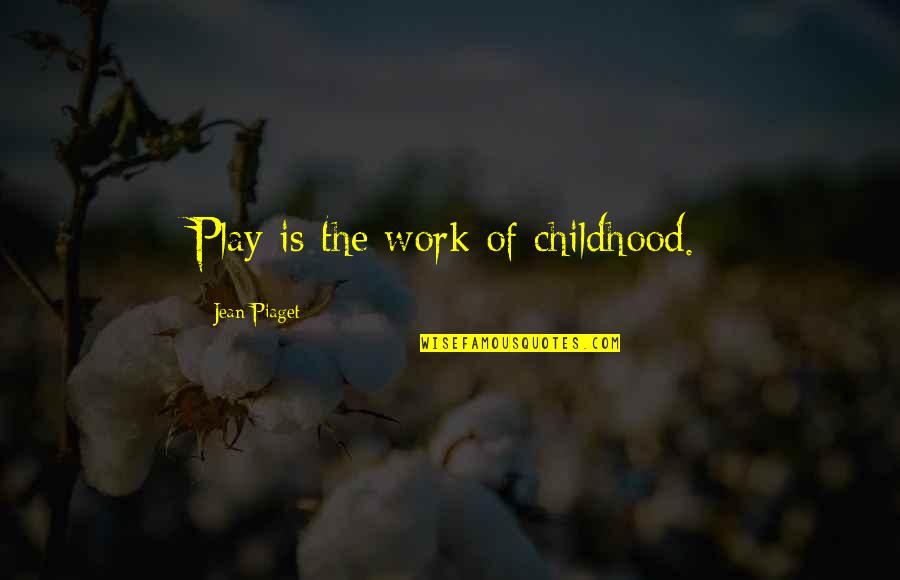 Play is the work of childhood.
— Jean Piaget
Play is the work of childhood.
— Jean Piaget
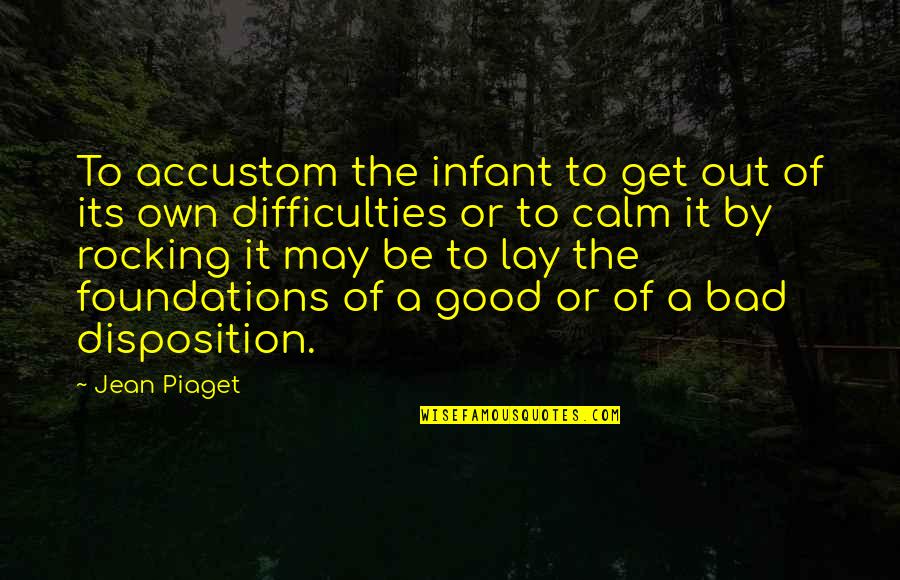 To accustom the infant to get out of its own difficulties or to calm it by rocking it may be to lay the foundations of a good or of a bad disposition.
— Jean Piaget
To accustom the infant to get out of its own difficulties or to calm it by rocking it may be to lay the foundations of a good or of a bad disposition.
— Jean Piaget
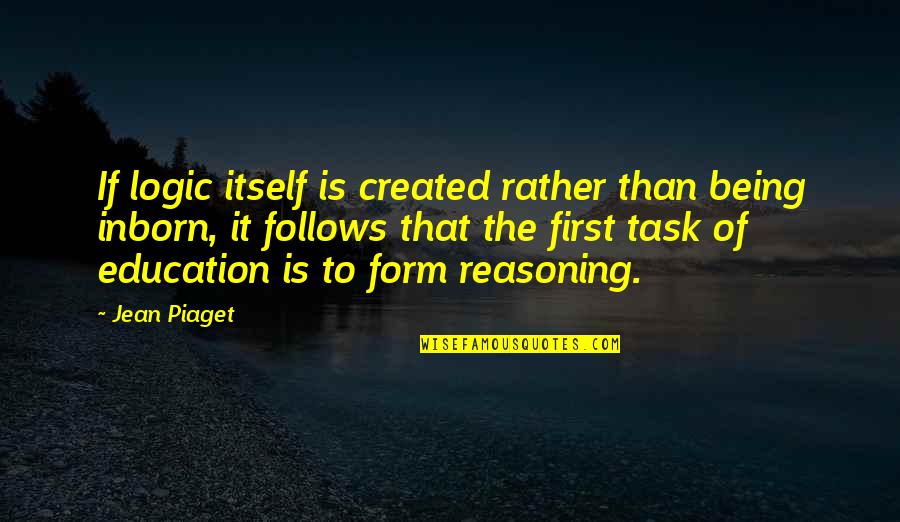 If logic itself is created rather than being inborn, it follows that the first task of education is to form reasoning.
— Jean Piaget
If logic itself is created rather than being inborn, it follows that the first task of education is to form reasoning.
— Jean Piaget
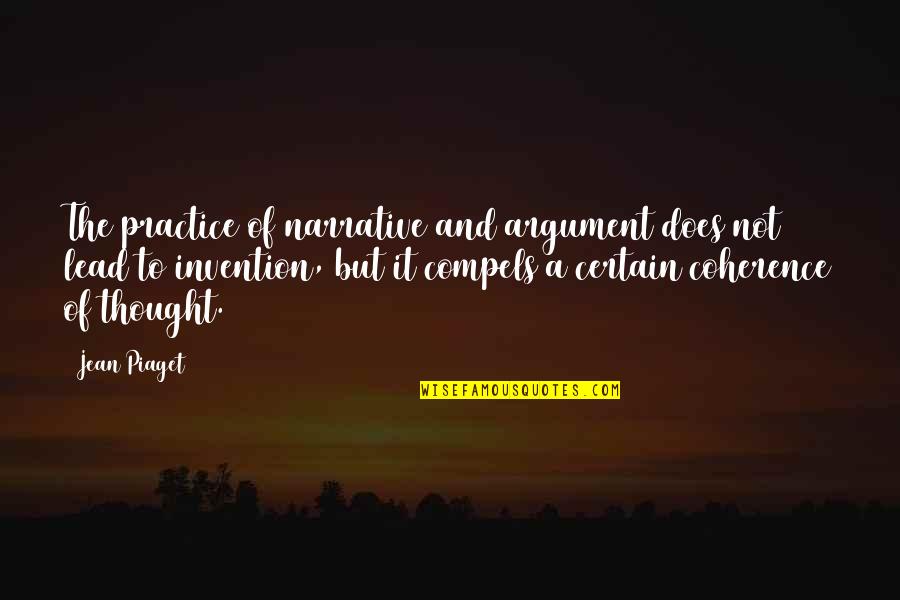 The practice of narrative and argument does not lead to invention, but it compels a certain coherence of thought.
— Jean Piaget
The practice of narrative and argument does not lead to invention, but it compels a certain coherence of thought.
— Jean Piaget
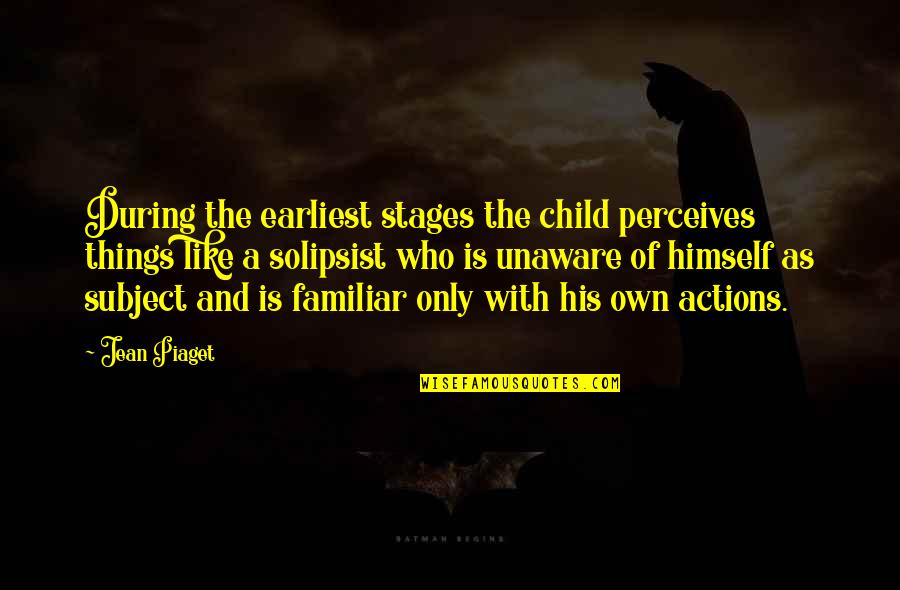 During the earliest stages the child perceives things like a solipsist who is unaware of himself as subject and is familiar only with his own actions.
— Jean Piaget
During the earliest stages the child perceives things like a solipsist who is unaware of himself as subject and is familiar only with his own actions.
— Jean Piaget
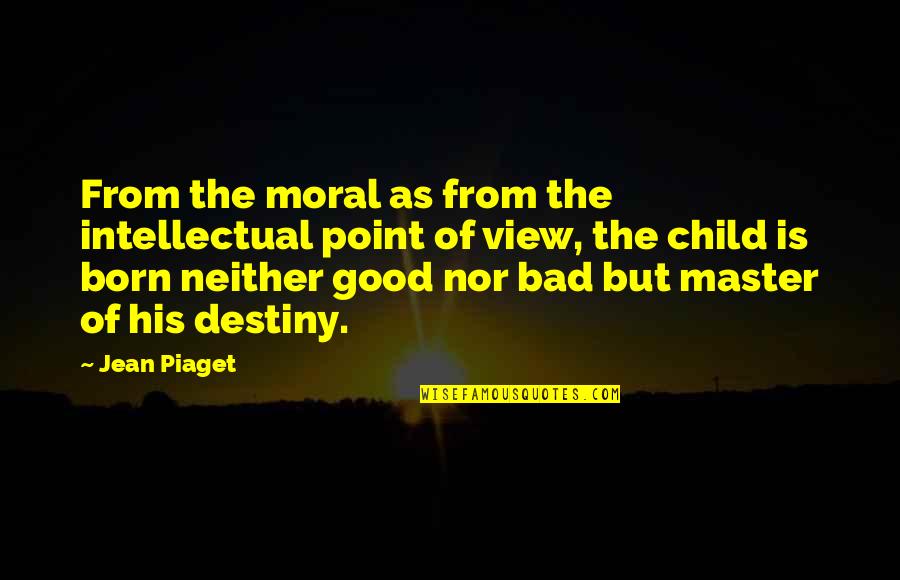 From the moral as from the intellectual point of view, the child is born neither good nor bad but master of his destiny.
— Jean Piaget
From the moral as from the intellectual point of view, the child is born neither good nor bad but master of his destiny.
— Jean Piaget
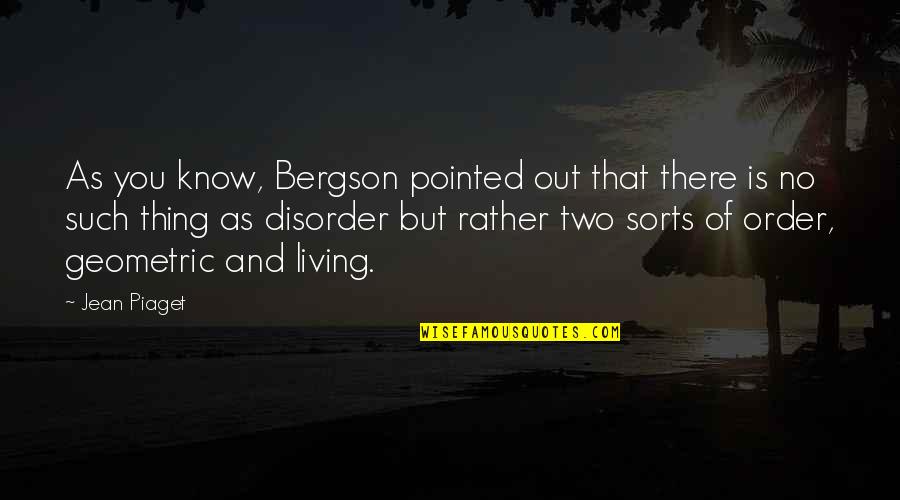 As you know, Bergson pointed out that there is no such thing as disorder but rather two sorts of order, geometric and living.
— Jean Piaget
As you know, Bergson pointed out that there is no such thing as disorder but rather two sorts of order, geometric and living.
— Jean Piaget
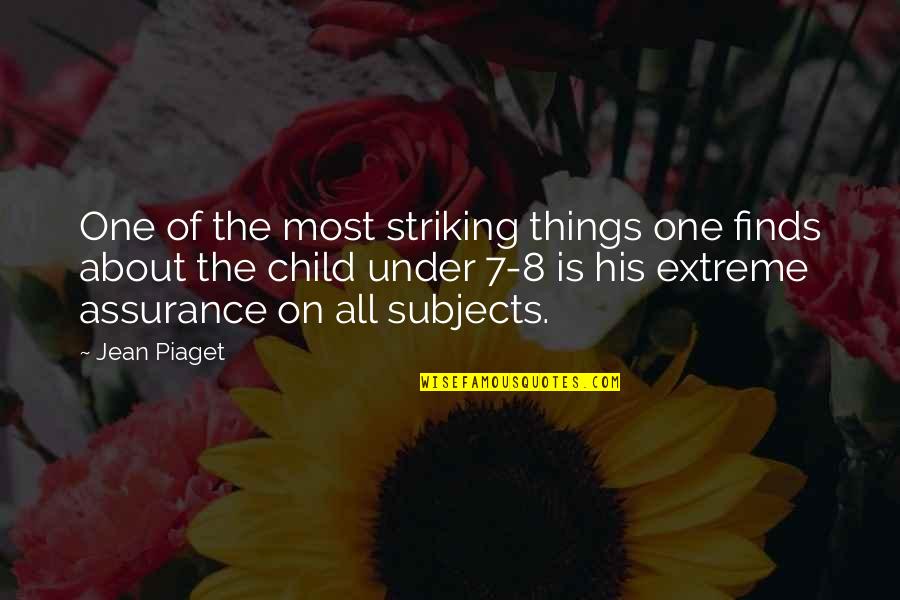 One of the most striking things one finds about the child under 7-8 is his extreme assurance on all subjects.
— Jean Piaget
One of the most striking things one finds about the child under 7-8 is his extreme assurance on all subjects.
— Jean Piaget
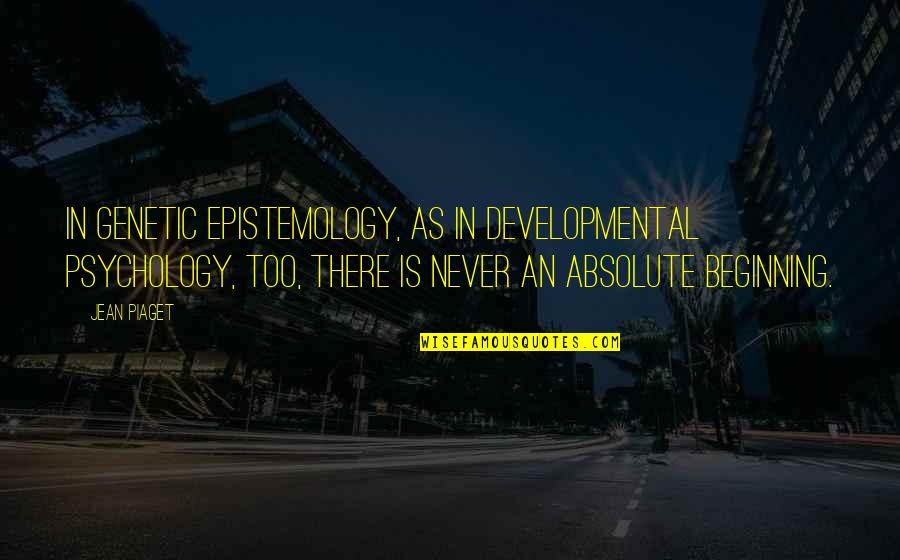 In genetic epistemology, as in developmental psychology, too, there is never an absolute beginning.
— Jean Piaget
In genetic epistemology, as in developmental psychology, too, there is never an absolute beginning.
— Jean Piaget
 Play is the answer to how anything new comes about.
— Jean Piaget
Play is the answer to how anything new comes about.
— Jean Piaget
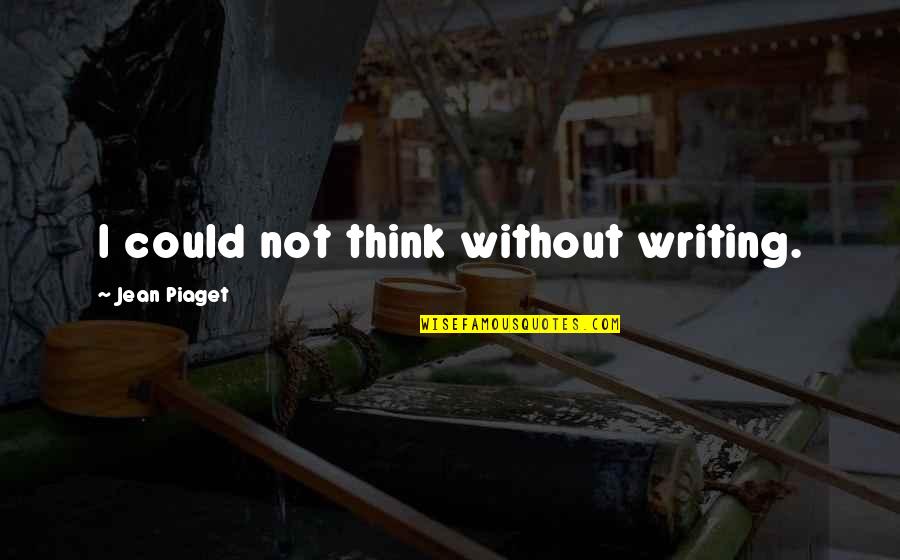 I could not think without writing.
— Jean Piaget
I could not think without writing.
— Jean Piaget
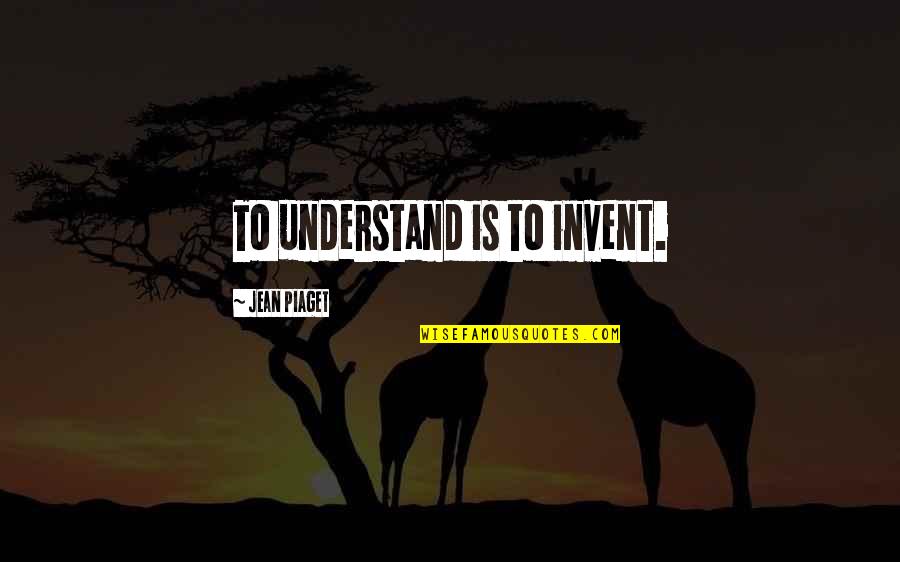 To understand is to invent.
— Jean Piaget
To understand is to invent.
— Jean Piaget
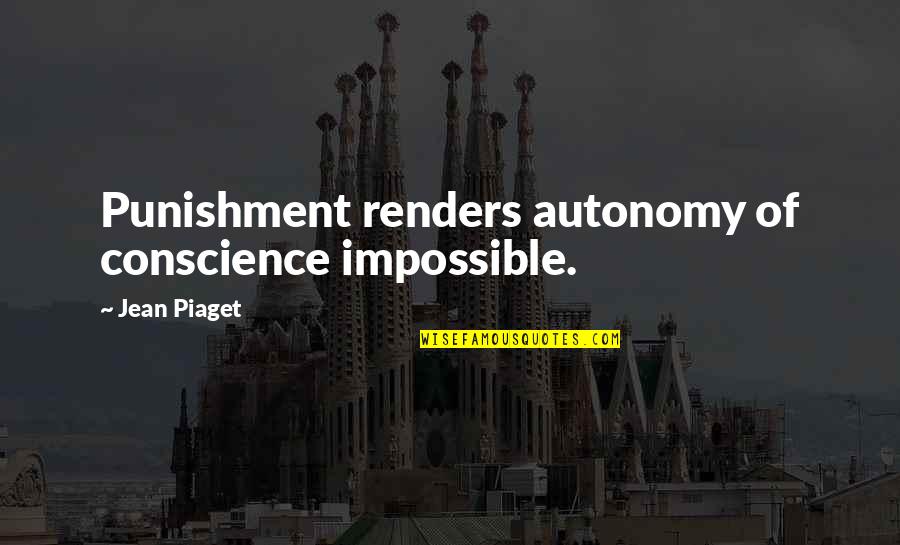 Punishment renders autonomy of conscience impossible.
— Jean Piaget
Punishment renders autonomy of conscience impossible.
— Jean Piaget
